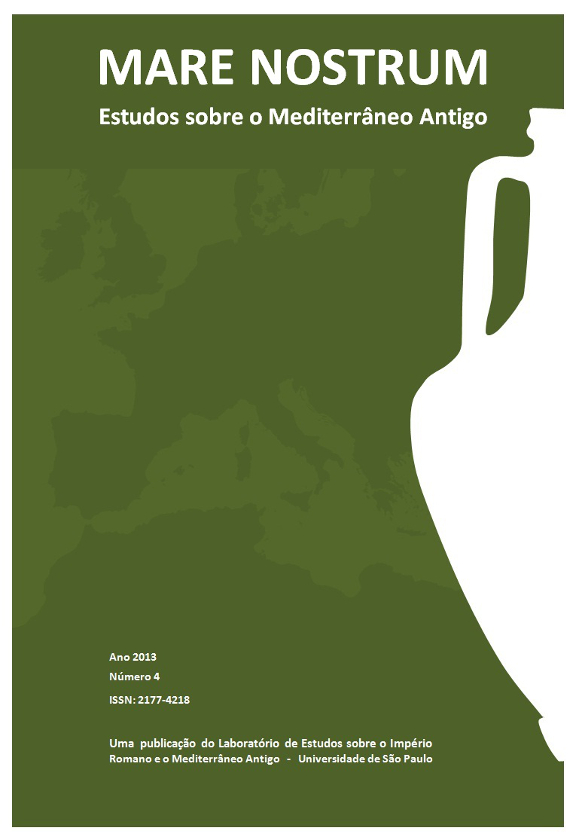O Processo de Legitimação e Reconhecimento do Priscilianismo na Segunda Metade do Século IV
DOI:
https://doi.org/10.11606/issn.2177-4218.v4i4p67-80Palavras-chave:
Priscilianismo, Legitimação, Magno Máximo, Autoridade Político-religiosaResumo
No século IV se desenvolveu na região da Gallaecia uma nova interpretação do cristianismo que foi denominada de Priscilianismo, pois seu criador era Prisciliano de Ávila. Após ser denunciado pela facção ortodoxa nicena da ecclesia da Diocésis Hispaniarum, Prisciliano e seus seguidores começam a tentar obter uma legitimação e o reconhecimento da autoridade de sua vertente do cristianismo, tanto no âmbito da ecclesia, como no âmbito da administração imperial. Apesar de ter obtido sucesso em um primeiro momento, Prisciliano e seus seguidores veem esse reconhecimento ser colocado em xeque por causa do processo de legitimação imperial em torno do usurpador Magno Máximo. Temos a intenção de mostrar neste trabalho como se desenvolveu este processo de legitimação e reconhecimento da autoridade político-religiosa do priscilianismo e como o mesmo esbarrou em outro processo de legitimação de autoridade, agora na figura do usurpador Magno Máximo.Downloads
Os dados de download ainda não estão disponíveis.
Downloads
Publicado
2013-10-28
Edição
Seção
Artigos
Licença
Os conteúdos expressos nos textos publicados pela Mare Nostrum são de exclusiva responsabilidade de seus respectivos autores.
A reprodução dos textos editados pela Mare Nostrum é permitida sob licença Creative Commons, Atribuição-NãoComercial (CC BY-NC).
Autores que publicam nesta revista concordam com os seguintes termos:
- Autores mantém os direitos autorais e concedem à revista o direito de primeira publicação, com o trabalho simultaneamente licenciado sob a Licença Creative Commons Attribution que permite o compartilhamento do trabalho com reconhecimento da autoria e publicação inicial nesta revista.
- Autores têm autorização para assumir contratos adicionais separadamente, para distribuição não-exclusiva da versão do trabalho publicada nesta revista (ex.: publicar em repositório institucional ou como capítulo de livro), com reconhecimento de autoria e publicação inicial nesta revista.
- Autores têm permissão e são estimulados a publicar e distribuir seu trabalho online (ex.: em repositórios institucionais ou na sua página pessoal) a qualquer ponto antes ou durante o processo editorial, já que isso pode gerar alterações produtivas, bem como aumentar o impacto e a citação do trabalho publicado (Veja O Efeito do Acesso Livre).
Como Citar
O Processo de Legitimação e Reconhecimento do Priscilianismo na Segunda Metade do Século IV. (2013). Mare Nostrum, 4(4), 67-80. https://doi.org/10.11606/issn.2177-4218.v4i4p67-80









